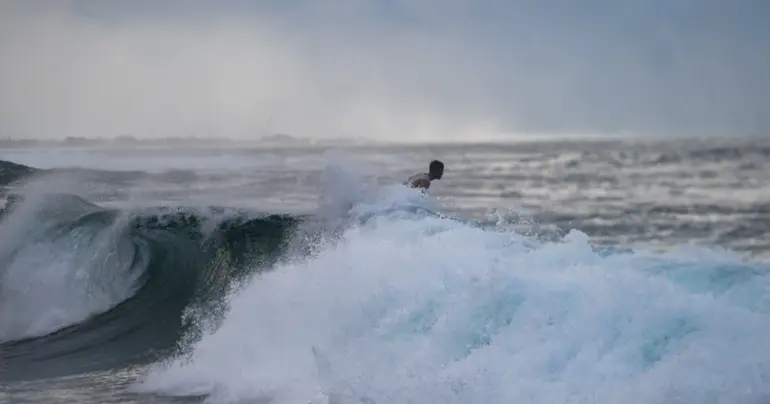Creating good doctors start in school: Toleafoa
 By Sialai Sarafina Sanerivi
•
01 March 2023, 11:00AM
By Sialai Sarafina Sanerivi
•
01 March 2023, 11:00AM
The Oceania University of Medicine (O.U.M.) Dean for Samoa and Asia-Pacific has a simple message for Samoan medical students as they start another academic year.
The message from the Associate Professor Toleafoa Dr. Viali Lameko is: "Creating good doctors begin in medical school".
Toleafoa said this in one of his most recently compiled research paper, which articulated the significance of training good medical practitioners, starting from the time they are in medical school.
"Samoa became another provider of medical doctors for Samoa and the world when the Oceania University of Medicine was established in Samoa in 2002, under an Act of Parliament of Samoa," he said.
"Then in 2013 a new School of Medicine was established under the National University, mainly to cater for Samoan students coming out of the N.U.S. UPY programme, and couldn’t secure a scholarship to travel abroad to study medicine or other personal issues."
According to Toleafoa, to date seven Samoans have graduated from O.U.M. with another three in May this year to make it 10 graduates. Also another 13 Samoan citizens are currently studying medicine at the university under the O.U.M. full-tuition scholarships.
"As for N.U.S. School of Medicine, about 30 Samoans have graduated from that school. Another milestone for the N.U.S. School of medicine, was the acceptance of medical students from the Solomon Islands about 5 years ago."
The O.U.M. academic then reminded young and aspiring doctors of Samoa not to blame the patients for being sick.
"Very often, you heard of patients and their families complaining about the attitude and behavior of medical doctors during an encounter, either at the hospital setting or at a private clinic.
"In the defense of the medical fraternity, the C.E.O. of M.O.H. or someone senior would get an interview which may appear on TV or in a local newspaper. It is also rare to hear doctors admitting 'I was wrong', within these walls of the hospital.
"But this has changed already over the years, as more clinical auditing meetings are being held between the health officers, and open discussions occurred between the patient and the doctor.
"Failing to do this will result in ongoing resistance to disclosure which will fuel the concealment of future errors, hence preventing better actions for better health services in the future."
Casting his eyes to how the medical profession is seen in other nations, Toleafoa said historically in the affluent countries, medical doctors were hailed as “royals in white coats” and followed a tradition that rewards the top achievers.
"Until recently, that meant only those who overachieved in school and hit the ceiling on all exams, may get to wear the white coat," he said.
"But the tide has changed and continues to change in how the medical schools select the candidates to enter the training program. Nowadays, the emphasis on ‘People management skills” and cultural competency are major criteria.
"That is, the admission interviews and activities will examined for the candidates emotional intelligence: the ability to communicate with real people in real situations and with professional colleagues in complex care-giving scenarios.
"Those who managed to satisfy all these criteria are accepted to start medical studies.In addition, the purpose of the final exit-examinations in any medical school, is to prevent the qualification of incompetent doctors and ensuring that only the successful candidates are safe to be “licensed to heal”.
These competencies are included here but not limit to treat a patient, not a disease; admit a patient, not a diagnosis; spend time with the bereaved and help them to shed tears; always keeping a line of hope between you and your patients; being kind and compassionate towards the patient and their families; do no harm; and don’t blame the patient for being sick.
"In the practice of medicine, compassion cannot be taught in a classroom or a lecture hall. It requires the student to engage with the suffering and a real desire to help another person, very often, is a stranger."
He then noted a reminder for all medical students and their parents, as they start yet another challenging year in their journey to become doctors for Samoa.
"As our Samoan clinical student’s returns to another year of hospital attachments, this is a reminder to them all and their parents.
"I did mention parents because they must have realised by now, through the eyes of their children, the high requirement of being in the hospital, Monday to Friday, 8am to 4pm, every week for two to three years.
"I wish all our medical students the very best with their studies in 2023 and beyond. Expect problems and hurdles as a medical student. Don’t let any doctor or anyone tell you that you can’t do medicine."
 By Sialai Sarafina Sanerivi
•
01 March 2023, 11:00AM
By Sialai Sarafina Sanerivi
•
01 March 2023, 11:00AM












